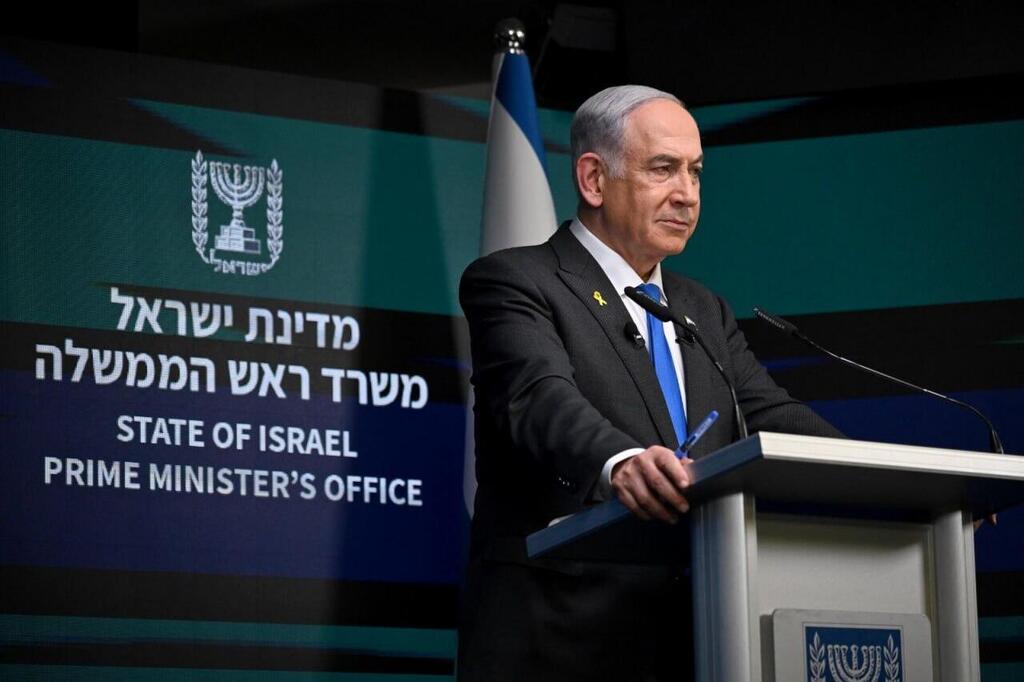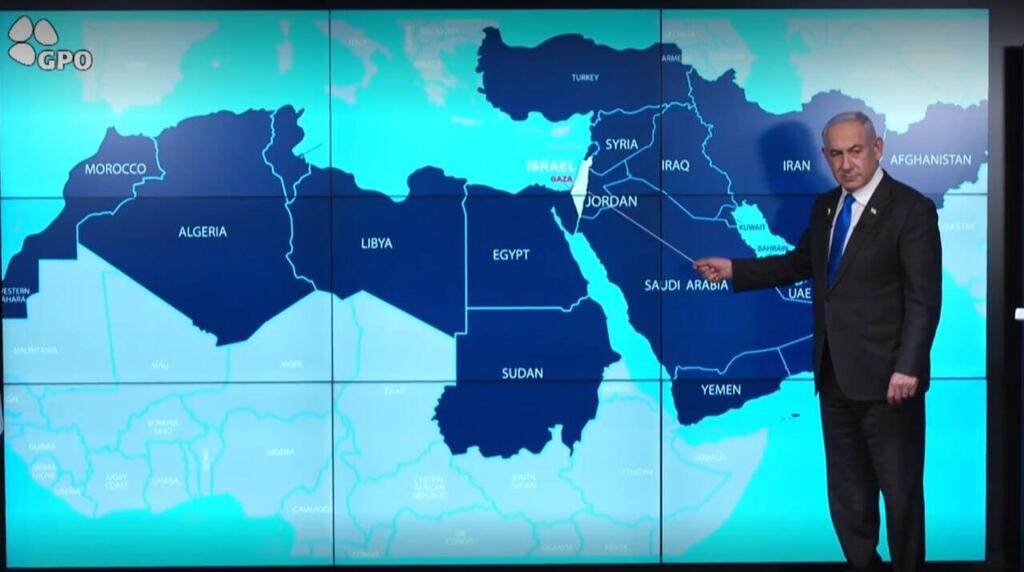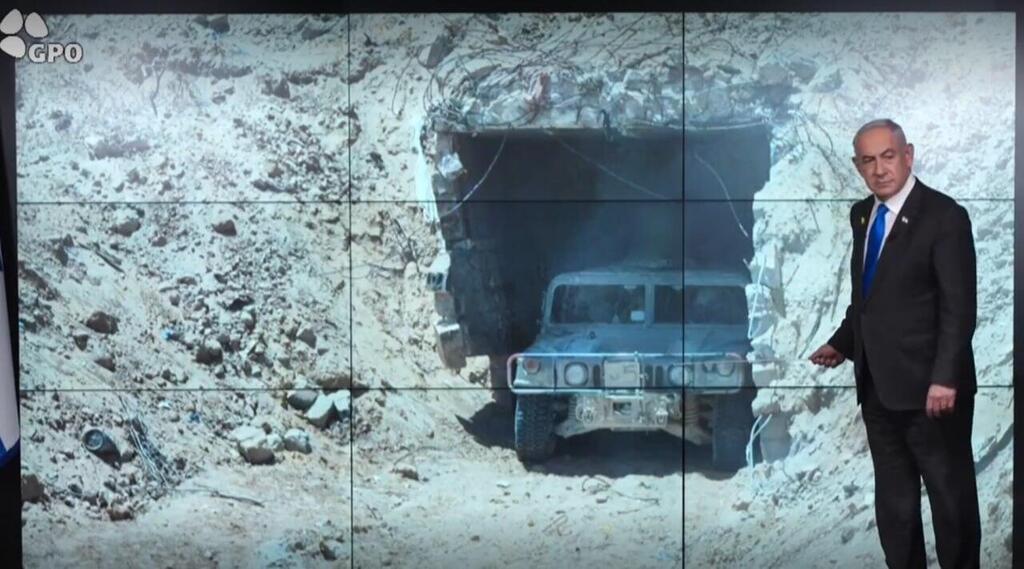Getting your Trinity Audio player ready...
Two days after addressing the strategic importance of the Philadelphi Corridor and amid growing international pressure for a cease-fire and hostage deal in Gaza, Prime Minister Benjamin Netanyahu holds a press conference for the foreign media on Wednesday evening at the Jerusalem Technology Park. The event is broadcast live by Ynet.
Netanyahu began his remarks by outlining Israel’s strategic position in the Middle East, offering a historical overview of the Philadelphi Corridor and its importance to the country’s security. He emphasized “the centrality of the Philadelphi Corridor” in preventing arms smuggling and maintaining stability along the Gaza-Egypt border. He argued that control of the Philadelphi Corridor was essential to freeing the hostages.
“Gaza cannot have a future if Gaza remains porous and you can enable the rearmament of Gaza through the Philadelphi Corridor,” he said. "If you want to release the hostages, you’ve got to hold on to the Philadelphi Corridor."
Netanyahu continued his remarks by detailing how Hamas had derailed negotiations for the release of hostages held in Gaza. He accused the group of intentionally obstructing efforts to secure their freedom, further complicating international mediation and prolonging the hostages' captivity.
The prime minister said that the U.S. has presented a final bridging proposal on August 16 which Hamas rejected. "We accepted it, but Hamas refused," Netanyahu said. "Secretary of State Antony Blinken stated that Israel had agreed, and now Hamas must do the same. On August 28, the CIA's deputy director noted that Israel had demonstrated seriousness in the negotiations, and it was Hamas' turn to accept the deal.
"So I ask, what changed the following week? What changed is that six of our hostages were brutally murdered in cold blood. And now the world expects Israel to make concessions after this massacre? What kind of message does that send to Hamas? Kill more hostages and get more in return? This is not only immoral—it's insane. It won’t happen. We had red lines before these murders, and they remain unchanged. We will uphold them."
On Monday evening, as large protests took place following the recovery of six hostages’ bodies from Gaza, Netanyahu spoke for about 15 minutes, emphasizing the importance of the Philadelphi Corridor. He sought to defend his stance amid harsh criticism of the Cabinet's decision to remain along the Gaza-Egypt border as part of a potential hostage deal.
On Wednesday, the Qatari newspaper The New Arab reported that Egypt had officially communicated its displeasure with Israel over the map Netanyahu used during the press conference. The report noted that Egypt was upset because the map depicted the Philadelphi Corridor as a military zone, contrary to the Camp David Accords.
This report follows previous revelations that the United States was also unhappy with Netanyahu's remarks during the press conference. "It’s not helping us," an American official was quoted as saying. Negotiators involved in the ceasefire and hostage talks also expressed confusion over Netanyahu's statements. Sources familiar with the negotiations said there is a discrepancy between what Netanyahu presented during the press conference and the maps shown by the Israeli negotiating team in the talks.





